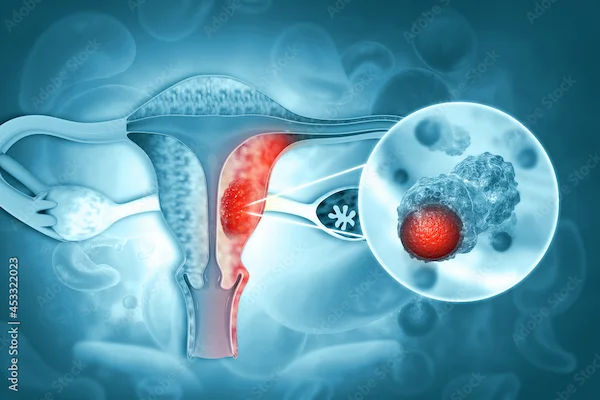When to Visit Hospital for Decreased Fetal Movement
Worried about decreased fetal movement? Learn when to visit the hospital, what causes reduced movement, and how to monitor your baby's activity for a healthy pregnancy.

Written by Dr. M L Ezhilarasan
Reviewed by Dr. D Bhanu Prakash MBBS, AFIH, Advanced certificate in critical care medicine, Fellowship in critical care medicine
Last updated on 11th Aug, 2025

Pregnancy is a beautiful journey, but it can also bring moments of worry, especially when you notice changes in your baby’s movements. Feeling your baby kick and move is not just reassuring; it’s also a sign of their well-being. If you notice decreased fetal movement, it’s important to know when to seek medical help.
Understanding Fetal Movements
Fetal movements are a sign that your baby is active and healthy. Most women start feeling their baby move between 16 to 25 weeks of pregnancy. These movements can feel like flutters, kicks, rolls, or even hiccups. As your pregnancy progresses, the pattern of movement may change, but your baby should remain active.
Why Fetal Movement Matters
Regular movement indicates that your baby is getting enough oxygen and nutrients. A decrease in movement could sometimes signal a problem, such as reduced oxygen supply or other complications. While not every change is serious, it’s always better to be cautious.
When Should You Be Concerned?
Not all changes in movement are alarming, but certain signs require immediate attention. Here’s when you should visit the hospital:
1. Fewer Than 10 Movements in 2 Hours
After 28 weeks, doctors often recommend monitoring fetal movements. A common method is the "kick count", lying on your side and counting how many times your baby moves in two hours. If you feel fewer than 10 movements, contact your doctor or go to the hospital.
2. A Sudden Drop in Movement
If your baby is usually active but suddenly moves much less, this could be a warning sign. Trust your instincts if something feels off, get checked.
3. No Movement for Several Hours
If you haven’t felt any movement for more than a few hours, especially after eating or drinking something sweet (which often stimulates the baby), seek medical help immediately.
4. Changes in Movement Patterns
Every baby has a unique pattern. If your baby’s usual movements slow down significantly or stop entirely, don’t wait get evaluated.
Consult Top Specialists
What Causes Decreased Fetal Movement?
Several factors can lead to reduced movement:
- Baby’s Sleep Cycle: Babies sleep in the womb, so occasional quiet periods are normal.
- Mother’s Activity: If you’re busy, you might not notice movements as much.
- Position of the Baby: If the baby is facing inward, kicks may feel weaker.
- Medical Reasons: Issues like low amniotic fluid, placental problems, or umbilical cord complications can reduce movement.
What to Do If You Notice Reduced Movement?
1. Try Stimulating Your Baby
- Drink a cold or sweet beverage (like juice).
- Lie on your left side and focus on movement.
- Gently poke or rub your belly to wake the baby.
2. Track Kick Counts
- Keep a log of movements, especially in the third trimester. If movements don’t pick up, call your doctor.
3. Don’t Wait; Seek Help
If movements remain low, go to the hospital immediately. Doctors may perform:
- Ultrasound to check the baby’s position and amniotic fluid.
- Non-Stress Test (NST) to monitor the baby’s heartbeat and movement.
Prevention and Healthy Pregnancy Tips
While some factors are beyond control, you can promote healthy fetal movement by:
- Staying Hydrated: Dehydration can reduce amniotic fluid.
- Eating a Balanced Diet: Nutrients support baby’s growth.
- Avoiding Stress: Relaxation helps both you and your baby.
- Regular Prenatal Checkups: Ensures everything is on track.
When in Doubt, Get Checked
Pregnancy can be unpredictable, and it’s always better to be safe. If you’re worried about decreased fetal movement, don’t hesitate to visit the hospital. Early detection can prevent complications and give you peace of mind.
Need Help?
If you have concerns about your baby’s movements, consult a specialist immediately. You can book an appointment with an obstetrician or schedule an ultrasound through Apollo 24|7 for quick and expert care.
Conclusion
Decreased fetal movement can be a sign that your baby needs medical attention, so always trust your instincts and act quickly. Monitoring movement and seeking help when needed can make all the difference in ensuring your baby’s well-being.
Consult Top Specialists
Consult Top Specialists

Dr. Vineet Mishra
Infertility Specialist
36 Years • MD, Phd, DSc
Ahmedabad
Apollo Hospitals - Gandhinagar, Ahmedabad, Ahmedabad

Dr Bhawna Garg
Gynaecological Oncologist
26 Years • MBBS, MS, (PGI MS ROHTAK) FELLOWSHIP GYNECOLOGY ONCOLOGY, (CANCER INSTITUTE CHENNAI)
Delhi
Apollo Hospitals Indraprastha, Delhi

Dr. Shweta Madhuri
Obstetrician and Gynaecologist
12 Years • MBBS , DNB(Obstetrics & Gynaecology)
Bangalore
Camry Hospitals Pvt LTD, Bangalore

Dr. Ritika Khurana
Obstetrician and Gynaecologist
16 Years • MBBS, DGO(GYNAECOLOGY AND OBSTETRICS)
Pune
Dr Rupali and Dr Ritika, Pune

Dr. Neha Jain
Obstetrician and Gynaecologist
18 Years • MBBS , DGO (Obstetrics & Gynaecology)
New Delhi
Dr. Jain's Pathlab and Clinic, New Delhi
Consult Top Specialists

Dr. Vineet Mishra
Infertility Specialist
36 Years • MD, Phd, DSc
Ahmedabad
Apollo Hospitals - Gandhinagar, Ahmedabad, Ahmedabad

Dr Bhawna Garg
Gynaecological Oncologist
26 Years • MBBS, MS, (PGI MS ROHTAK) FELLOWSHIP GYNECOLOGY ONCOLOGY, (CANCER INSTITUTE CHENNAI)
Delhi
Apollo Hospitals Indraprastha, Delhi

Dr. Shweta Madhuri
Obstetrician and Gynaecologist
12 Years • MBBS , DNB(Obstetrics & Gynaecology)
Bangalore
Camry Hospitals Pvt LTD, Bangalore

Dr. Ritika Khurana
Obstetrician and Gynaecologist
16 Years • MBBS, DGO(GYNAECOLOGY AND OBSTETRICS)
Pune
Dr Rupali and Dr Ritika, Pune

Dr. Neha Jain
Obstetrician and Gynaecologist
18 Years • MBBS , DGO (Obstetrics & Gynaecology)
New Delhi
Dr. Jain's Pathlab and Clinic, New Delhi




